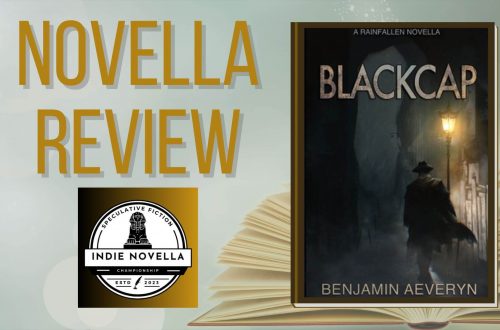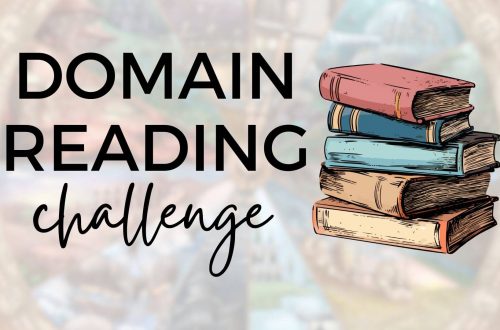Ah, writer’s block; the dreaded curse of all writers everywhere. Some writers find themselves fearful of writer’s block, whereas others don’t believe it exists at all. Personally, there have been times in my writing we’re I’ve become stuck and needed to unstick myself, and here is what I’ve learned:
Step One: What’s Blocking You?
Step one of fixing writer’s block is asking yourself WHY you’re blocked.
For a lot of newer writers, the biggest block is fear itself. Fear of not getting the words out properly. Fear of writing something awful. Fear is the biggest enabler of the procrastinator. If you want to write, then you need to face your fear and smack it over the head.
First, there’s no dark cloud that’s going to poison you against writing and make it impossible to get the words out. More difficult maybe, but not impossible. Nor do you need to wait for your Muse to turn up for their shift in order to find the energy and motivation to write. Truth is, writing isn’t always fun. It doesn’t always come out smooth. You can’t wait for those moments where the heavens open, the choir starts singing, and you’re blessed with the perfect prose. Nope, sometimes you need to sit your ass down and treat it like work. You’ve got to pull the words out, even if they’re kicking and screaming the entire time.
The other sacred truth? Your writing quality isn’t any better or worse for this. And even if the words suck, it doesn’t matter. Nothing is set in stone. Anything that is written can be rewritten.
For me, the biggest block I face when writing is indecision. It’s not knowing where the story should go next.
If you’re a pantser and never outline a story in your life, you’ve probably faced more writer’s block than me, though my writing style is a mixture of writing an outline and just seeing where the story takes me. Hell, I don’t even know where this blog entry will end up yet!
So when I’m writing a scene, I don’t always know what should happen next, or I have different paths. If the hero needs to fight the dragon, then there’s multiple ways they could do this. The hero could also be a coward, so a direct fight wouldn’t seem plausible. And that’s when I become stuck. Where do I take the story? Any action the hero takes will have consequences, and I want my hero to ultimately win. How do I get them from A to C? What is B?
When I can’t figure this out, I get blocked, and then I load up Skyrim.
Step Two: Know Your Characters
My hero needs to defeat the dragon, but there are multiple paths I could take to get from A to C. Ultimately, you know your own story, and the best decision for your story is the one the characters will make themselves.
My dragon-hunting hero is a coward. He doesn’t want to get into a direct fight with the dragon as he knows he’ll lose. And it would be unrealistic of both him and me to place him in that situation, have him fight the dragon, and win. It’s not very satisfying. It’s not going to happen that way. It’s the easiest of the story choices, but I know in my gut it’s a bit rubbish. That’s why I’m blocked in the first place.
If you’re not sure how your character will act and react in any given situation then I’d recommend spending time getting to know your character. Why are they a coward? Are they scared of dragons or have some other childhood trauma? What are their skills? Are they smart enough to figure out a different way of dealing with the dragon? Do they have other skills they can bring to the battle?
Step Three: Breaking it Down
Sorry, pantsers, but breaking it down means getting off Skyrim and making a – gasp – outline of sorts. Okay, not a real outline, but this is what I do:
Now I know that my cowardly hero is scared of dragons, I can come up with some solutions on how to deal with the dragon without my character wanting to get too close. My hero will want to engage in the fight from a distance, either by using long ranged weapons or traps. Which one of these I use depends again on my character’s background – is he trained in either skill? But I still need to decide on the outcome. Perhaps my hero is successful and vanquishes the dragon with a rocket launcher quite easily. Or perhaps the dragon is much stronger, and forces my hero into a close encounter that my hero most certainly does not want, and he panics.
I still want my hero to overcome and win, but that doesn’t mean there can’t be some consequences. Maybe my hero is injured, or he injures someone else or destroys a building during the panic and scuffle. That’s a whole different set of choices, and ultimately it depends on the tone of the story you’re writing. Your light-hearted fantasy tale doesn’t require your hero getting his limbs eaten.
So, when I have multiple ideas for how the scene could progress, I write down a list of scenarios: the hero fights the dragon with a rocket launcher and defeats it, the hero uses traps and defeats it, the hero is too slow and the dragon overwhelms him, etc. Then, under all these scenarios, I write a blow-by-blow bullet point list of what happens in that scenario. What the hero does, what the dragon does, what happens, how the scene ends.
At the end of that, I’m left with three or four different ways this scene could play out, all with their own endings. With these scenarios I can they see how they change where the story goes next. Have they overcome their fear of dragons? Do they now own a shiny pair of dragon boots that could be handy later in the story? What if my hero lost an arm in one scene? That would impact the story as a whole.
Normally, I would then say pick the scenario which is the most interesting or holds natural consequences, but that depends on the impact that scenario has and what tone you want your story to be. But with these scenarios, you’ll have a better idea of where your story could go, and that’ll help you move forward. More often that not, just breaking down my scene like this helps me understand where I want the story to go and how the character’s will act.
Step Four: Make a Cup of Tea
If all else fails and you’re still struggling with writer’s block after that, I’d recommend finding an online writing group and sharing your scene and ideas with them for feedback. Or, assuming the pandemic rules allow you, head to your favourite coffee shop and discuss your ideas aloud over a nice cup of tea. When I developed Sand Dancer, there were many times I became stuck and wasn’t sure where to take a scene. Just sitting down and explaining it to someone else in person helped me figure out where my characters and scene needed to go – even before anyone else could open their mouth to speak!
Or you could pick up your favourite book and see how the author approached a similar scene. Sometimes, just reading how other authors do it can be revealing and also reassuring.
Do you suffer from writer’s block in the same way I do? Or are there other blocks you struggle with? Drop a comment!




